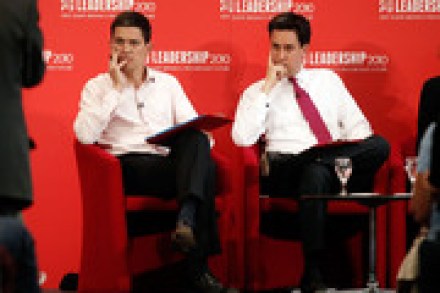David Miliband has the best of it as the Labour leadership candidates debate
David Miliband’s performance in Sky News’ Labour leadership hustings will have calmed the nerved of his supporters. In the run-off between him and his brother, David came out on top. His answers were generally sharper and he managed to parry away Ed’s criticisms on tuition fees and foreign policy. (In a pointed remark, Ed said that the Labour government’s foreign policy had been based on ‘old ideas’.) Indeed, Ed Miliband only seemed to get going in his closing statement which was pitch-perfect David’s best moment came when the contenders were asked to pick between Blair and Brown. Ed Balls opted for Brown, Diane Abbott said that Brown ‘was the better



















